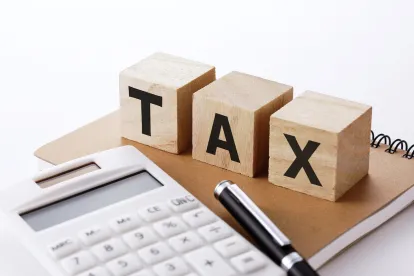A recent US Tax Court decision confirmed that taxpayers can benefit from the “profits interest” safe harbor, set forth in Revenue Procedures 93-27 and 2001-43, which holds that the issuance of such an interest in exchange for services that benefit a lower-tier entity that is or would become a partnership is not a taxable event. The Tax Court also rejected the IRS’s assertion that the purported profits interest was actually a capital interest.
The Tax Court’s holding is consistent with market practice, and although the case is a memorandum case, and as such, does not have precedential value, it does provide reassurance to investment partnerships that, in many cases, profit interest arrangements in tiered partnership structures will be respected.
Background
Revenue Procedure 93-27 provides, subject to certain exceptions, a “safe harbor” indicating that the receipt of a “profits interest” in exchange for the provision of services to or for the benefit of a partnership in a partner capacity (or in anticipation of being a partner), is not a taxable event. As provided in Revenue Procedure 93-27, a profits interest is a partnership interest that is not a capital interest. Under the Revenue Procedure, a capital interest is an interest that would give the holder a share of proceeds if the partnership’s assets were sold for their fair market value, and then the proceeds were distributed in complete liquidation.
Facts of the Case
In the case at issue, NPA, Inc. (“Corporate Owner”) agreed to sell 70% of its interest in the business. The acquisition was structured as follows. Corporate Owner formed two new entities, IDS (the “Upper-Tier Partnership”) and NPA LLC (the “Lower-Tier Partnership”), and contributed substantially all of its business assets to the Lower-Tier Partnership in exchange for Class B and C units of the Lower-Tier Partnership. Corporate Owner then immediately contributed all of its units in Lower-Tier Partnership to the Upper-Tier Partnership, and transferred the class C units to the taxpayer in exchange for services performed to the Corporate Owner “for strategic advice for the purpose of enhancing the [Corporate Owner’s] business and to assemble an investor group [for the sale transaction].” The Class A units were sold in connection with these transactions to an unrelated third party.
The Class B and C units of the Upper-Tier Partnership were identical to the Class B and C units of the Lower-Tier Partnership, respectively. This meant that the owner of the Class B units of the Upper-Tier Partnership was entitled to 100% of the payments received by the Upper-Tier Partnership because of its ownership of the Class B units of the Lower-Tier Partnership. Also, the owner of the Class C units of the Upper-Tier Partnership was entitled to 100% of the payments received by the Upper-Tier Partnership because of its ownership of the Class C units of the Lower-Tier Partnership.
To or for the Benefit of the Partnership. The IRS asserted that the safe harbor set forth in Revenue Procedure 93-27 did not apply because the taxpayer (and its principals) provided services solely to Corporate Owner and not to either the Upper-Tier Partnership or the Lower-Tier Partnership. While the Tax Court acknowledged that the taxpayer did provide services to the Corporate Owner, it rejected the IRS’s position, noting that the taxpayer also provided services to or for the benefit of the Lower-Tier Partnership. The Tax Court further reasoned that it was of “no material consequence” that the taxpayer’s interest in the Lower-Tier Partnership was held through the Upper-Tier Partnership. The Tax Court characterized the Upper-Tier Partnership as a “mere conduit” given that the Class C units in the Upper-Tier Partnership were the same as the Class C units that the Lower-Tier Partnership issued to the Upper-Tier Partnership. Accordingly, the Tax Court concluded that the safe harbor in Revenue Procedure 93-27 applied and the taxpayer did not recognize income upon the receipt of a partnership interest in the Upper-Tier Partnership because the interest was a profits interest granted in exchange for services provided to or for the benefit of the Lower-Tier Partnership.
Profits Interest Liquidation Valuation. The IRS also asserted that the safe harbor in the Revenue Procedures was not applicable because the Class C units were capital interests and not profits interests. The Tax Court held that the best evidence for the fair market value of a partnership in a hypothetical liquidation is an actual arm’s-length transaction made proximate to the valuation date (i.e., the sale of the Class A units to the unrelated third party). Consistent with market practice, the Tax Court noted that absent compelling evidence, an arm’s-length transaction, even without a formal appraisal, is sufficiently reliable.
Observations
The Tax Court confirmed and affirmed market practice where individuals may provide services to a fund and receive a carried interest in the general partner of the fund. It also affirmed a common aggregator partnership structure to avoid the W-2/K-1 or “dual status” issue so that employees can continue to receive W-2s for their wages and the investment partnerships can maintain administrative simplicity as well as tax-favored benefit plans and control over information rights, among other commercial benefits.
Notwithstanding the foregoing, it is not clear if the Tax Court would have concluded in the same manner if the interests in the Upper-Tier and Lower-Tier Partnership did not perfectly track. Taxpayers should take caution when the profits interests in the upper-tier and lower-tier entities are not identical.
The case also provides a reminder to taxpayers that where a third-party sale is not contemplated at or near the grant of a purported profits interest, care should be given when determining the value of the assets of the partnership for purposes of granting the profits interests.




 />i
/>i

